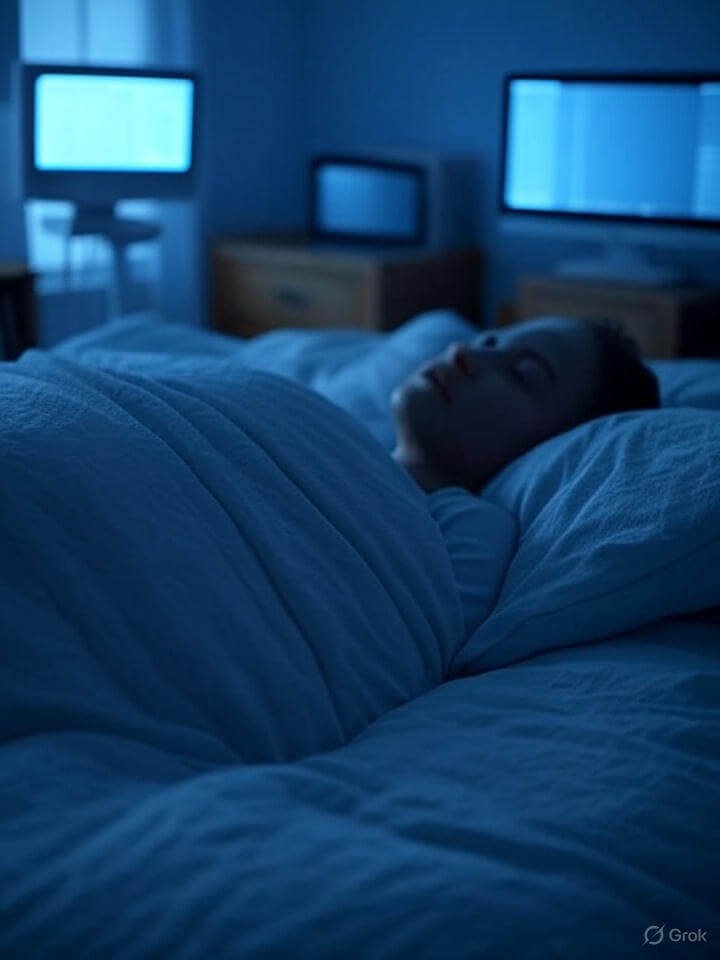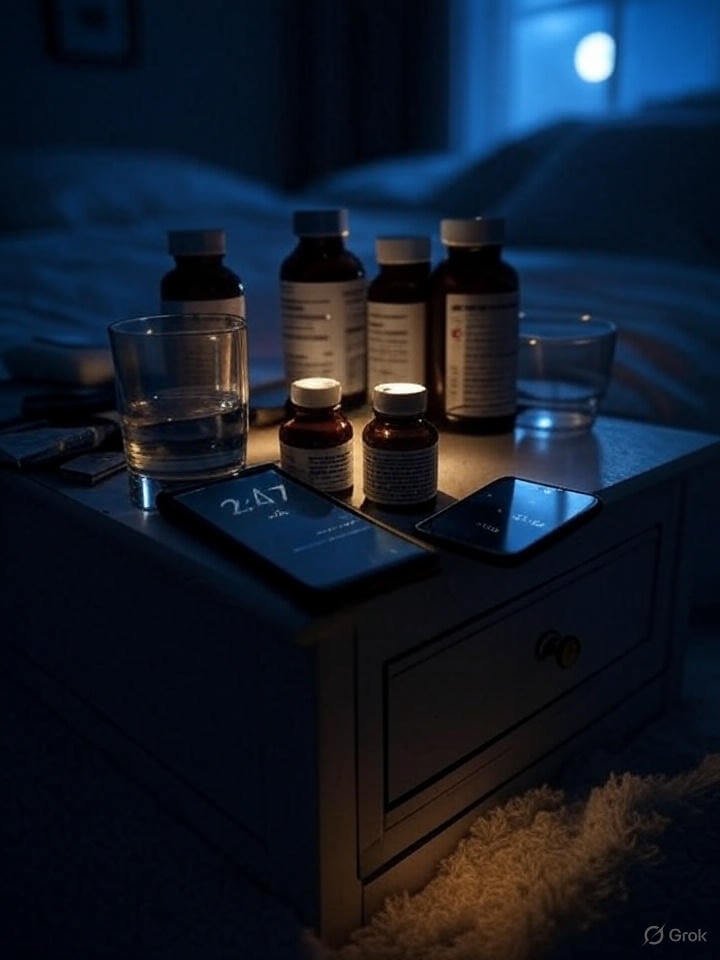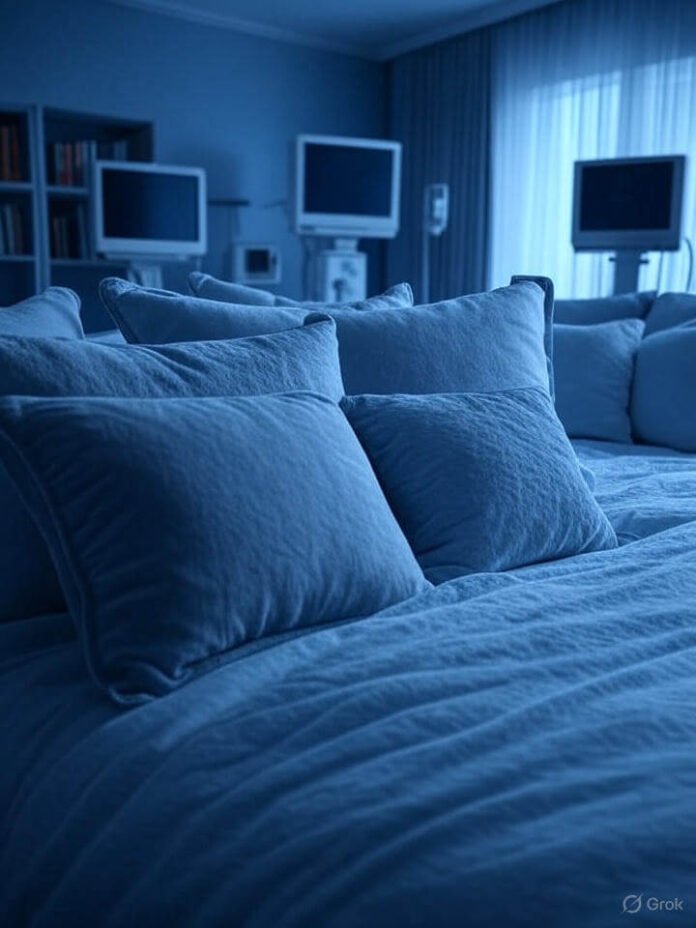You ever Google “how to choose the right sleep clinic” at 2:47 AM while staring at your ceiling fan like it’s plotting against you? Yeah, same. That was me a couple months ago, lying there, half angry, half desperate, realizing that my relationship with sleep had basically become… toxic. Like, the red flag kind of toxic.
And then I had that thought: maybe I need professional help. Like actual sleep experts. A sleep clinic. But here’s the thing—have you ever tried to pick one? It’s like dating apps but for your brain waves. They all look the same, everyone promises they’ll “change your life,” and you’re left swiping between “free consultation” and “state-of-the-art lab” until you’re more awake than you were before.
So yeah, this post is me talking you through how I eventually figured out how to choose the right sleep clinic—without going completely bananas. And trust me, it’s not just about picking the first one your insurance covers (though, spoiler: that does matter).
Step 1: Admit You’re Not Just “Bad at Sleeping”
This is embarrassing, but I honestly thought sleep clinics were only for people who snored like cartoon dads. You know—Homer Simpson vibes. I was like, “Well, I don’t snore, so I’m just broken, I guess.” Turns out, nope.
Sleep clinics help with all kinds of stuff: insomnia, restless legs, sleep apnea, narcolepsy (which I used to think was just falling asleep at Thanksgiving dinner but is actually much more serious).
Point is, you gotta admit you’re not just “bad at sleeping.” You might actually need someone to measure your REM cycles and hook you up to machines that make you look like a sci-fi character. Accepting that was like step one.
Step 2: Figure Out What Kind of Sleep Study You Actually Need

When I first called a clinic, the lady asked me if I was looking for an “in-lab polysomnogram” or a “home sleep test.” And I was like… “Ma’am, I barely know how to spell melatonin.”
So here’s the quick breakdown I wish I had:
- In-lab sleep study = you go spend the night in their fancy room, they stick sensors on you, and basically Big Brother watches you sleep.
- Home sleep test = smaller version, you take the equipment home. Easier, less expensive, but not as detailed.
The right one depends on your symptoms. If you’re worried about sleep apnea, sometimes the home test is enough. But if you’ve got insomnia so bad you literally forget how to nap, they’ll probably want you in-lab.
Step 3: Don’t Get Catfished by Fancy Websites
So many sleep clinics have these slick websites with stock photos of people waking up smiling, like:
“I slept SO well I forgot I owed student loans!”
Yeah, right.
What actually helped me decide? Reviews. Not the 5-star glowing ones that feel fake, but the 3- and 4-star ones where people are like, “The tech was super nice, but the wires made me itchy.” Realistic. Relatable.
Also—ask your regular doctor for recommendations. Mine straight up told me, “Don’t go to that one down the street unless you like waiting three months for results.” Honestly saved me from a meltdown.
Step 4: Visit the Place (Yes, Actually Visit)
Okay, this one felt weird at first. Who just visits a sleep clinic? But I drove over one afternoon because I had trust issues. And thank god I did, because one of them looked like a motel from a horror movie. (Hard pass.)
The one I chose had rooms that looked like slightly-boring-but-clean hotel rooms. Neutral beige walls, no flickering lights, no creepy vibes. Just… fine. And fine is what you want when strangers are gluing wires to your face.
If you can’t visit, at least ask for photos. Some clinics post virtual tours, which sounds silly, but honestly, you’ll feel better knowing whether you’re sleeping in a room that looks like a dorm or a crime scene.
Step 5: Ask Questions Like You’re Annoying
This part is awkward because I hate calling places. I’m that person who will starve before ordering pizza if the online app is down. But calling the sleep clinic? Worth it.
Questions I asked:
- How long does it take to get results?
- Do you bill insurance directly or do I have to fight my insurance company like a medieval knight?
- Are your doctors board-certified in sleep medicine or just like… enthusiasts?
If they sound annoyed by your questions, that’s a red flag. You’re literally trusting them with your sleep—aka your sanity—so they should care enough to explain things without making you feel dumb.
Step 6: Think About the Logistics (a.k.a. The Boring Part)

Here’s what no one told me: choosing the right sleep clinic isn’t just about the clinic. It’s about your life.
Do they have overnight staff? (Because if you wake up panicking at 2 AM, you don’t want to be alone.)
How far is it from your house? (Because if it’s a two-hour drive, you’ll be cranky before you even lie down.)
Do they schedule follow-ups easily, or is it a six-week wait just to hear, “Yep, you’re tired”?
I almost picked a clinic 45 minutes away. Then I pictured myself doing that drive at 7 AM after being hooked up to 30 wires all night. No thank you.
Step 7: Trust Your Gut (and Maybe Your Anxiety)
This is gonna sound woo-woo, but your gut usually knows. When I walked into the clinic I ended up choosing, I just… exhaled. Like, “Okay, I can maybe fall asleep here without thinking someone’s gonna steal my socks.”
And yeah, my anxiety still tried to chime in (“What if the tech judges how weirdly you toss and turn?”), but deep down, it felt right.
Random Tangent: My Sleep Study Night
Quick story: during my actual in-lab study, I fell asleep watching The Office reruns (because apparently Michael Scott yelling “That’s what she said” is my lullaby now).
At like 3 AM, the tech came in because one of my sensors fell off. I woke up mid-dream and just yelled, “NO THANKS, I’M FINE,” like a toddler refusing broccoli. He cracked up. I apologized the next morning, and he said it happens all the time. Apparently, sleep clinics are full of half-asleep comedy gold.
The Bottom Line (but not the boring kind)
If you’re thinking about how to choose the right sleep clinic, here’s my messy little checklist for you:
- Admit you need help (you’re not just “bad at sleep”).
- Figure out whether you need an in-lab or home study.
- Ignore the stock photo smiles—check real reviews.
- Visit or at least look at the actual rooms.
- Ask annoying questions.
- Think about the logistics.
- Trust your gut.
It’s kinda like picking a tattoo artist or a hairstylist. You want someone who knows what they’re doing, but also someone you feel comfortable around, because you’re literally vulnerable in their chair (or bed).
And honestly? Getting real answers about my sleep was one of the best decisions I made. Because nothing—NOTHING—hits like waking up after your first decent 8-hour stretch in years.
































